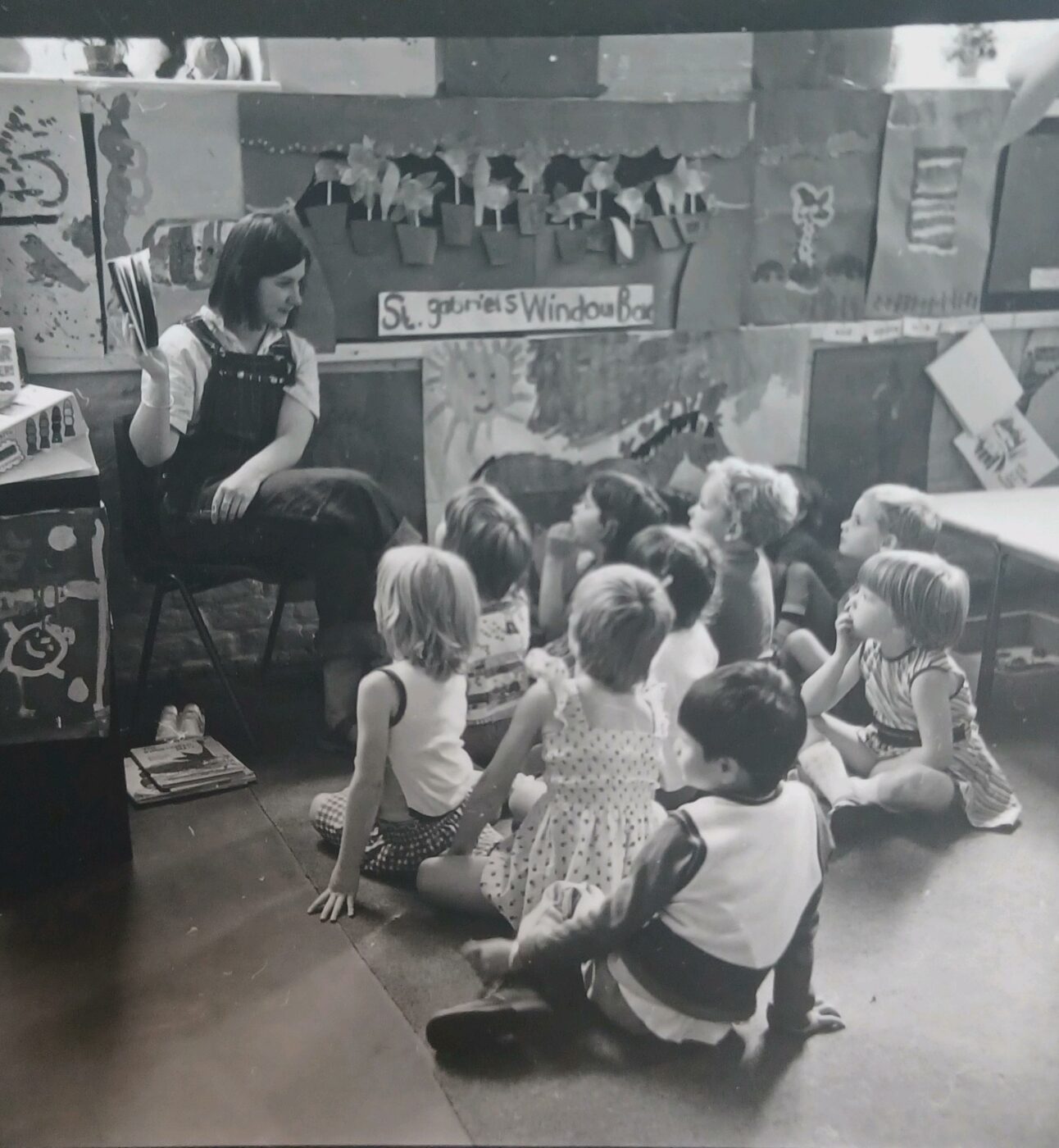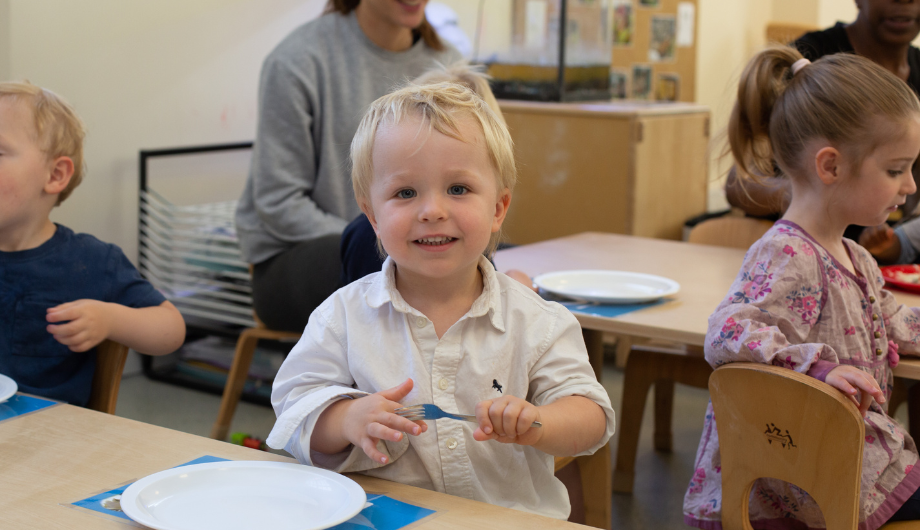
Talking Early Years: Celebrating 120 Years at LEYF
The Year That is 2023 – This year, we are proud to celebrate 120 years of LEYF. It’s been fascinating to reflect back on what has changed over…
May 8th 2011
This weekend, I spent some time helping my sister (also in Early Years!) go through her old teaching resources in readiness to move them into a new space. Amongst the many gems we unearthed was a copy of Nursery World from May 2002.
Leafing through this random issue, I was reminded of Bill Murray in that classic film, Groundhog Day, as I discovered quite how shockingly familiar the stories in there really were: Liz Robert’s editorial was all about the delays to getting CRB checks done and the implication for nursery businesses; there was a report called Bitter Sweet which was raising concern about obesity in children; Coram had just been funded to examine quality in childcare from a European perspective, Care work: Current Understandings and Future Directions; the Daycare Trust was sharing the key messages from its report Raising Expectations – Delivering Childcare for All , which identified low morale among childcare staff because of low pay and their inability to increase their salaries due to difficult access to good quality qualifications. There was also a quote from Stephen Burke, then director of the Daycare Trust on the national childcare strategy which was as pertinent today as in 2002.
We need a rejuvenated national childcare strategy. Without a radical rethink and substantial investment the Government won’t be able to fulfil its ambitions not just to deliver childcare for all but to end child poverty. The pace pf change is too slow and in some cases is invisible to parents”.
Stephen Burke, Nursery World, 2002 (23rd May, p5)
This week Nursery World reported on the Doing Better for Families report, produced by the Organisation for Economic Co-operation and Development (OECD), which compared family well-being in 30 countries. The report noted that child poverty in the UK fell from 17.4% to 10.5% between 1995 and 2005, more than in any other country. However, the report also confirmed that progress on reducing child poverty had stalled and was at risk of rising.
So is there an easy solution to avoiding opening our copies of Nursery World in May 2020, only to discover that in ten years not much has changed once again? We are not short of reports and research about what seems to be needed; still we seem unable, paralysed even, to implement what needs to happen if we are to see changes made that will not only last a long time, but also and more significantly make a real difference to children, families, their communities and our society as a whole.
Let’s focus on child poverty for a moment: why can’t we write on one side of an A4 page what Early Years policy decisions and services caused the drop in child poverty? Were Early Years policies irrelevant, with the drop in child poverty simply down to other more critical factors such as an economic shift and different fiscal policies? Do we not have the wherewithal to work some of this out and at least try and summarise what is needed to reduce child poverty once and for all? If not, we will only continue to shoot in the dark; wasting money, failing children and spending our time kidding ourselves that everything is fine and that the emperor really is wearing a suit of gold. As a civilised country, we cannot allow child poverty to continue to be such a disgraceful blot on our landscape; beautiful in so many other ways.
Last week, I looked at the organisation Action for Happiness, which warned us that consumerism and individualisation will not make us happy. Neither will keeping high levels of child poverty. The link between wellbeing and inequality was also highlighted in a most interesting book called The State of Happiness by the Young Foundation (N, Bacon, M. Brophy, N, Mguni, G. Mulgan and A. Shandro, 2010). In the last chapter, they ask whether public policy can shape people’s wellbeing and resilience, with the following conclusion:
There is as yet no straightforward menu of policies to improve wellbeing. Advances in behavioural economies and psychology have improved understanding of this territory. But specific policy knowledge is limited. There are many promising ideas and approaches but little certainty that a particular set of actions will deliver particular results.”
The State of Happiness, 2010 (p86)
This could be the same issue facing child poverty: maybe we don’t know enough to solve the problem immediately. So, what options do we have? Remain complacent and accepting or respond to Michael Gove, Secretary of State for Education, who told this week’s Nursery World that…
…rather than having a top down approach to delivering support for children in the Early Years , we need to work in partnership , not with local government, but with those in the voluntary and charitable sector.”
Michael Gove, Nursery World, 2011 (5th May, pg 4)
It’s a fair point and one we need to act upon. The sector must come together and agree what we need to do if we are to play a real part in helping reduce child poverty. There are enough reports out there we can refer to – including the Department for Education’s own, launched in April by Rt Hon Iain Duncan Smith MP – along with their recent investment in a strategic partner, charged with bringing the sector together to solve problems and celebrate successes.
From my side, I will be speaking at a national policy conference this Wednesday, so welcome any comments or questions you’d like me to raise on the day. To get you thinking, just ask yourself: do you really want to be reading Nursery World in 2020 about the challenges we still face in getting to grips once and for all with child poverty?

The Year That is 2023 – This year, we are proud to celebrate 120 years of LEYF. It’s been fascinating to reflect back on what has changed over…

We have been raising the issues of childcare funding for over 10 years. It has been so long, I am amazed at how patient I’ve remained – and…

In the beginning of 2022 So here we are. The final blog of 2022. And hey, we’ve managed to get through what has been a year of discontent and foolishness.